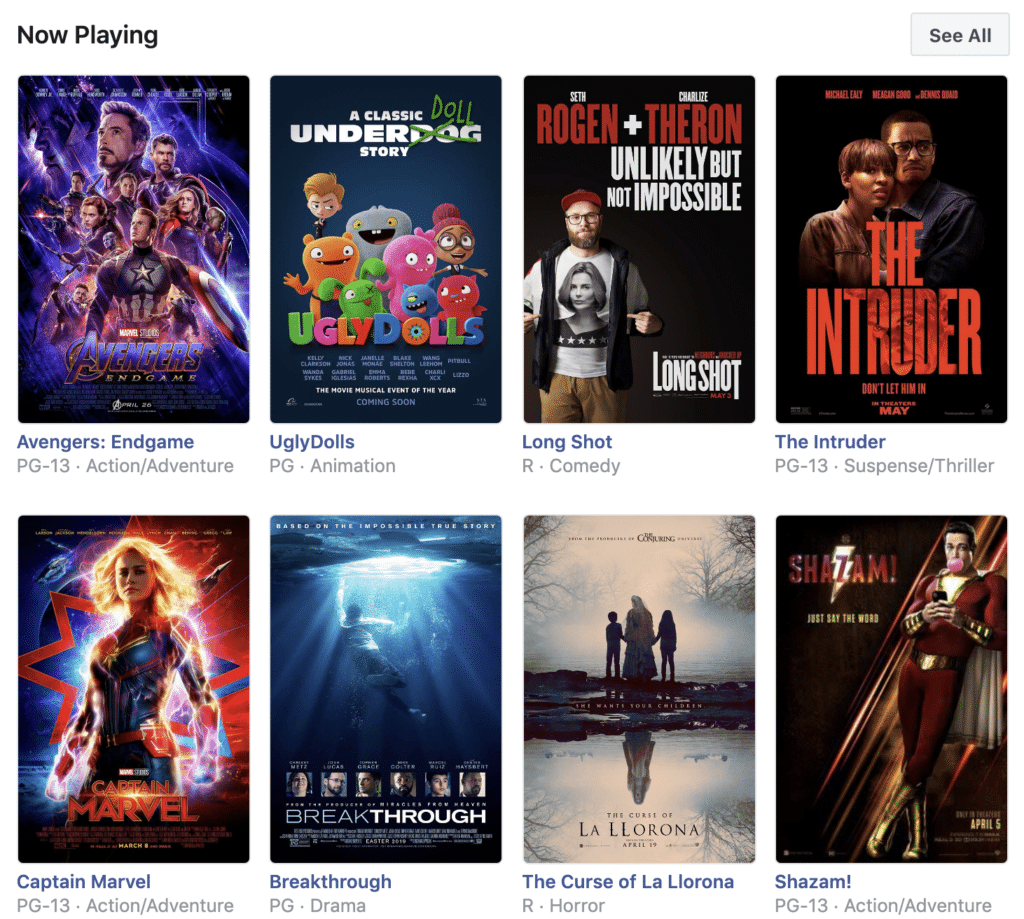
Although online vendors provide the convenience of purchasing movie tickets from the comfort of people’s couches, buying from them can be perplexingly costly. Processing and convenience fees that appear at the last stage of the checkout process can turn a reasonably priced ticket to an expensive one for no apparently good reason. Those who are tired of hidden extra fees have another cheaper — albeit unconventional — option: purchasing movie tickets from Facebook.
Facebook movie tickets don’t include the added fees people normally get from online vendors. These fees are waived at the end of the checkout process.
Tickets and showtimes are located in Facebook’s movie hub, simply called “Movies,” accessible from the left column of News Feed under the section “Explore.”
Movies is also available to the Facebook app, accessed by clicking the three-lined hamburger icon from the upper-right corner of the screen, scrolling down to the bottom and clicking “See More,” then scrolling down once again to “Movies.”
The titles available for purchase range from films already in theaters to films yet to be released. ArcLight, AMC, and Regal are some of the theaters users can choose from.
The ability to purchase movie tickets from Facebook without the dreaded additional fees rolled out in March of last year. However, that wasn’t Facebook first attempt in dabbling with the film industry.
Back in September of 2016, Facebook partnered with Fandango, allowing users to purchase movie tickets from the platform without leaving their News Feeds. Users could buy the tickets from Fandago’s Facebook page or ad. At the time of partnership, users could purchase tickets for The Magnificent Seven, Storks, and Kevin Hart: What Now?
When this partnership became public, Fandango had already experienced rapid growth two years prior, all thanks to online and app ticketing systems that made purchasing movie tickets easier. Still, more convenience, one analyst concluded, would create more growth for the company.
“Consumers, particularly young ones, find it inconvenient to hop into different silos to get something done. They want it all in one place,” said Forrester analyst Julie Ask in the New York Times article that reported on Facebook and Fandango’s partnership.
But for Fandango’s president, the goal for the partnership is to reinforce the social aspect of going to the movies.
“It’s not just about purchasing ease, it’s also about bringing along groups of people,” Mr. Yanover said in the same New York Times article. “Hey, we’re going to see this movie. Why don’t you come along? Great. Boom. Done.”
Paul Dergarabedian, senior media analyst at Com Score, agrees. In his perspective, the social aspect of watching a movie is important for the film industry.
“The social aspect of what Fandango is doing is really important for Hollywood,” Dergarabedian said in the same New York Times article. “Most people do not go to the movies alone, and there is the potential here to turn a two-ticket purchase into a four-ticket purchase.”
Dergarabedian has a point. Who would want to go to a movie theater alone? Because going to the movies is a social activity, partnering with Facebook seems logical. It is, after all, a social media site invented to bring friends, family, and loved-ones together.
However, Facebook isn’t the only company with whom Fandango partnered to encourage growth. The movie vendor also partnered with Apple iPhone, allowing its users to buy tickets without leaving a texting conversation. At that time, it also planned to partner with Snapchat, and there was a possibility of another partnership with YouTube.
Other than providing convenience and increasing ticket sales, this new method was perhaps inspired by a frightening decrease in tickets at that time. Around 513 million Americans went to the movies in the summer of 2016, a 3.5 percent decrease compared to the previous year. With Facebook’s help, Fandago hoped the partnership will not only grow the business but also entice young Americans to go to the movies.
